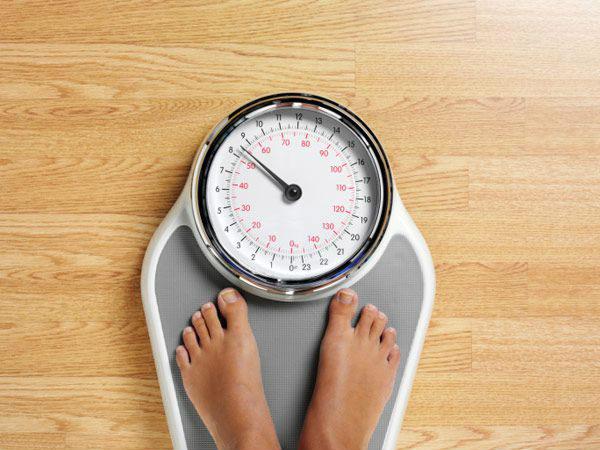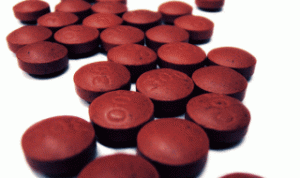Excessive weight gain in a short period of time – Weight gain you can’t control
There’s a difference between a few extra kilos and sudden weight gain in stomach and thighs. It is not just a sign of binge eating. This sudden weight gain can signal imbalances in the body that you should take note off.
The frustration of seeing extra pounds on the scale—or of a too-tight waistband that you know used to fit—is understandable. But did you know that anything from a hormonal imbalance to vitamin deficiencies to the prescription meds you take can hold clues to what’s making you gain weight? “A lot of people make what we think are lifestyle choices but are actually our bodies reacting to factors we can’t control,” says Robert J. Hedaya, MD, clinical professor of psychiatry at Georgetown University Medical Center. “Whether it’s hormonal, a medication side effect, or something else, too often we put the onus on the individual, and there are factors that sometimes justify a doctor’s help.”
Sudden weight gain in the stomach region could possibly mean that you’ve pigged out on good food. However, excessive weight gain in a short period of time or gaining weight for no reason is not a good sign – it could mean anything from vitamin deficiencies and hormonal imbalances to something more dangerous. Take note of the difference between a few extra kilos and sudden weight gain in stomach and thighs and know exactly what can cause unexplained weight gain.
Here, seven health issues that could be standing between you and your ideal weight—and how to fix them.
Medications can cause sudden weight gain
Antidepressants, birth control pills, corticosteroid tablets – all of these contribute towards unexpected weight gain. Antidepressants can cause weight gain of anywhere around 2-7 kg.
Depending on hormonal levels, brand, and dosage, birth control pills could add a little weight to one’s body.
It has been observed that long-term use of corticosteroid tablets leads to increased appetite in some cases, leading to weight gain. If you suspect your weight gain to be a possible effect of medicines, contact your doctor immediately.
Fix it: If you suspect your medication is affecting your waistline, your doctor may be able to find an alternative treatment that won’t have that particular side effect.
Digestive issues
Issues with digestion, whether it is bad metabolism or slow bowel movements, could be a reason for all that excess weight. Low fibre content and dehydration are also major causes of your gut acting out, leading to possible weight gain. Eating probiotics, drinking lots of water, and including fibre-rich foods in your diet are some steps you can take towards improving your digestion. If you have any extreme prolonged issues, do check with your doctor.
Fix it: If constipation is your only symptom, then trying probiotics can help your digestive tract work properly. Staying hydrated is key, along with a diet chock-full of fiber-rich foods. But you can also try drinking a fiber powder, like Metamucil, mixed with water. “It may even grab fat globules in your intestinal tract as it scrubs out waste,” says Dr. Hedaya. If you’re still having trouble, check with your doctor to rule out a range of disorders, including hypothyroidism or a neurological issue.
Sudden weight gain points to thyroid disorder
Hypothyroidism, or an underactive thyroid, which is usually most common in older women, contribute towards weight gain. It essentially indicates that thyroid hormones aren’t being produced enough by the thyroid gland, which negatively affects metabolism and leads to weight gain. While hypothyroidism is usually treated with levothyroxine tablets (daily hormone-replacement medicines), other symptoms such as fatigue, irregular body temperature and depression warrant a trip to the physician immediately.
Lack of nutrients
You might be eating healthy, but if your body isn’t getting the correct nutrients and is low in vitamin D, iron, magnesium, etc., it alters the metabolism and saps one’s energy. When you take to eating simple carbs, sweets and caffeine for energy, weight gain is inevitable.
What causes bloating and weight gain? Not staying hydrated and eating too much salty food – surprise, surprise. Take Vitamin D supplements and add almonds and Brazil nuts to your diet to boost nutrient levels in the body.
Fix it: While you can try to boost your iron levels by eating red meat and spinach and increase magnesium by adding Brazil nuts or almonds to your diet, it’s nearly impossible to consume enough milk or get enough sunlight to compensate for low vitamin D. “It’s important to know that it could take awhile to find your right dose of vitamin D,” says Dr. Hedaya. “If you take too much, you can get kidney stones.
You need to have your blood tested every three months, so your doctor can make adjustments to the dose for you.” Adding an iron supplement is a little less tricky—but it’s still wise to let your doctor rule out hypothyroidism or other conditions that might cause insulin resistance, and thus weight gain, before you start taking supplements.
Ageing leads to sudden weight gain

Stress and lifestyle diseases
Long-term stress is linked to continued weight gain, according to the Obesity Journal. Researchers have found that stress hormones cortisol is also related to weight gain. Also if you are suffering from a possible disease, then weight gain could be possible. For instance, people with diabetes on insulin supplements could witness a weight gain. People suffering from the rare Cushing’s Syndrome have high levels of the cortisol hormone, with weight gain not only being a symptom but also a side effect, especially on the stomach, face, and chest. One of the most commonly occurring conditions among women today, PCOS, also results in weight gain around the waist as a symptom.
Weight gain around the belly is more troubling and could possibly indicate the presence of a tumour. In such cases, meeting your physician is imperative.
Fix it: “If I see patients who are taking anti-depressants and that could be the culprit of their weight gain, I may wean them slowly off of the drug,” says Dominique Fradin-Read, MD, MPH, assistant clinical professor at the Loma Linda School of Medicine in California. “I may then put them on Wellbutrin instead, which actually helps with weight loss.” If your meds are not to blame, seek out some workout buddies or a support group. “Attending meetings, like Weight Watchers, or working out with a group of friends is a great way to increase social support,” Dr. Needham says, “which can help depression.”
You have Cushing’s Syndrome
Weight gain accompanied by high blood pressure, osteoporosis, and changes in your skin tone and quality, including purple or silvery stretch marks on your abdomen and ruddy cheeks, could be a sign that your body isn’t processing nutrients the way it should, due to a cortisol-producing tumor on one of your adrenal glands. The syndrome affects only about 15 in every million adults annually, so proceed with caution before demanding a battery of tests. “Cushing’s Syndrome is not terribly common,” says Dr. Wittlin, “but one of the telltale signs is that your fat distribution is more in the midsection of your body, leaving your arms and legs looking more slender.”
Fix it: If you suspect you are gaining weight that you can’t attribute to your eating habits, medications, or lack of exercise, a few tests—including a blood test and urinalysis, to get an accurate check of your body’s cortisol levels, will give your doctor the first clues to this condition. If the levels are deemed excessively high, then your doctor will order further tests, like a CT scan of your pituitary and adrenal glands, to determine if such a tumor exists. If the tumor is confirmed, doctors will likely perform surgery to remove the tumor (and possibly the affected gland), followed by a course of steroids to help regulate the remaining gland.
You Are Getting Older
It’s the one condition that’s unavoidable. “Often, I hear patients tell me they think their metabolism is slowing down,” says Dr. Fradin-Read. “This is real—we don’t burn as many calories at 40 or 50 as we used to burn at 20. So we need more exercise—and less food—to keep metabolism going. Some studies show that exercise might be even more important than the diet for long-term weight maintenance.”
Fix it: “Remember that all calories are not equal when it comes to weight,” says Dr. Fradin-Read. “Eating lean protein will cause your body to burn calories more efficiently. On the other hand, carbs are something your body tends to burn more slowly and even store in your body more readily.” Choosing low-fat proteins and reducing carbs are good ways to help avoid unnecessary pounds.















